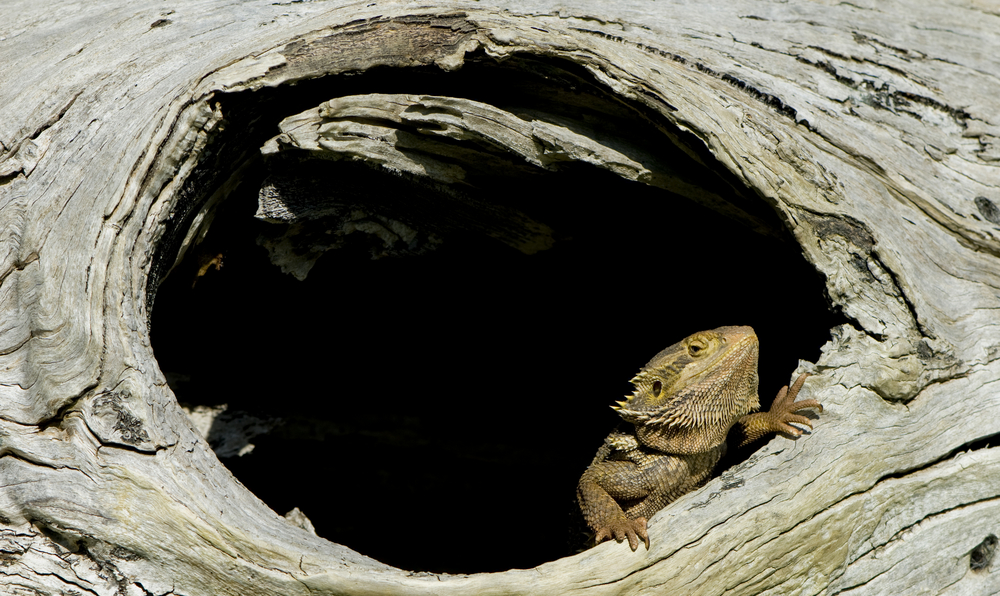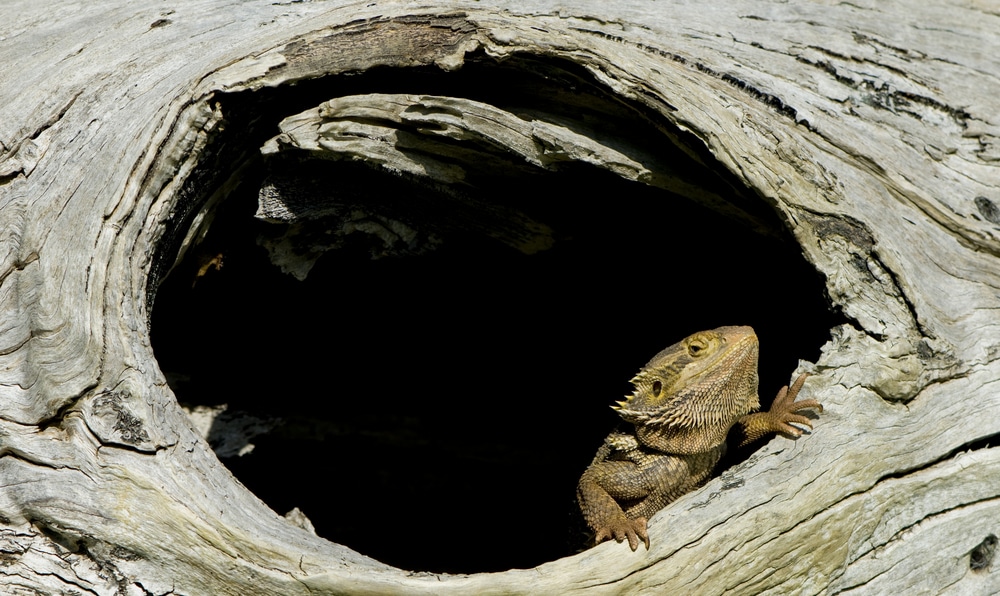Any Information you can give me about bearded dragons would be very helpful.
Q: I own a bearded dragon. I noticed that he will find himself a spot, dig a hole and sleep for 24 to 30 hours. Is this normal? He is about 7 months old. He doesn’t eat a lot either. He eats a few meal worms every other day. Thanks for any info you can provide.
A: I would be better able to help you if you could have provided me with some additional information regarding your lizard’s care, such as the temperature range in its habitat, which is probably the most important data that I need to know. Beardies require a hot environment, with a basking spot of between 95 and 110 degrees F, and the habitat should have a somewhat cooler side, ranging around 80-85 degrees F. If you don’t have thermometers in the cage, then the first that thing you need is purchase some. You won’t be able to care for your beardie appropriately without knowing the temperature of the habitat. Keeping your beardie at too low of an ambient temperature could be one reason why it is sleeping so much and not eating well.
Also, your beardie requires a full-spectrum light to properly grow and utilize calcium for healthy bones. If you don’t have a full-spectrum light that provides adequate ultraviolet (UVB in particular) light, that could be another problem.
Beardies are omnivores, meaning that they consume both vegetation and animal proteins (insects and the occasional pinky). It is not a good idea to feed just a single food item (such as mealworms) as this will lead to nutrient deficiency and malnutrition. Please check back in the archives of my on-line column to read a comprehensive column all about beardies and their care.
I recommend offering beardies about 50 percent commercial bearded dragon pellets, and 25 percent gut-loaded crickets, mealworms, waxworms and other insects, and the last 25 percent vegetables (dark green leafy vegetables, frozen mixed vegetables, blossoms, squash, shredded sweet potatoes and carrots, and other healthy seasonal veggies, plus small amounts of fruit). A vitamin/mineral supplement may be offered, especially if the beardie is a picky eater.
Please evaluate your husbandry for your lizard and if you are providing the correct environment and diet, then you should consider taking your beardie to see a qualified herp veterinarian for evaluation. Certainly, if you haven’t been doing the best for your beardie up until now, then I would recommend that you make an appointment with a herp vet as soon as possible to figure out what is wrong so that your lizard can begin treatment before it gets any worse.

shutterstock/brooke whatnall
A bearded dragon needs to have a habitat with a cooler side, ranging around 80-85 degrees F.



